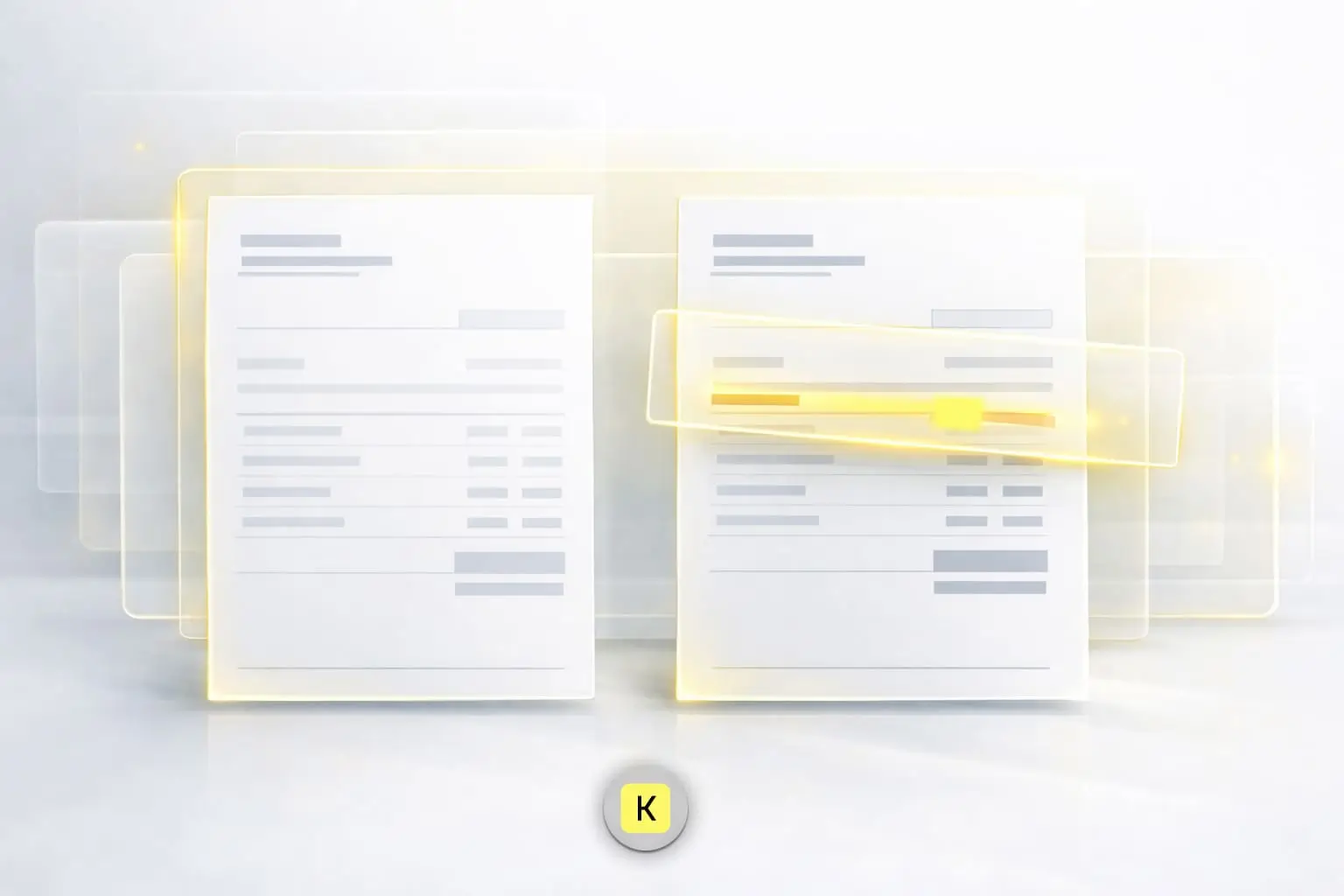
Yann LeCun’s vision for the future of AI, beyond LLMs and AGI.
Comparatives
Dernière mise à jour :
November 3, 2025
5 minutes
With the multiplication of documents to be verified and the growing requirement for speed and reliability, the automation of KYC is becoming a major strategic lever. This is where technologies like OCR (optical character recognition) and IDP (Intelligent Document Processing) come in. Let's discover together their role, the types of documents concerned, and the advantages of a digitized KYC.
Automating KYC means fewer errors, faster processing, and stronger compliance. Discover how intelligent document processing is transforming identity verification in the most demanding industries.
Identity verification, or KYC (Know Your Customer), is a legal requirement for many businesses. It involves collecting supporting documents to confirm the identity and status of clients, whether they are individuals or legal entities. When applied to companies, this process is referred to as KYB (Know Your Business), an extension of KYC specifically designed for corporate clients.
While KYC/KYB compliance is expected from all businesses, it is especially strict in financial sectors such as banking, insurance, fintech, and payment service providers. These industries are more vulnerable to fraud risks and must implement enhanced measures to secure their business relationships.Les documents requis dans le cadre du KYC
The KYC process relies on the collection and analysis of various types of supporting documents, which differ depending on the client’s profile (individual or business). These documents typically fall into three main categories:
In addition to these core documents, additional proof related to professional or personal circumstances (such as family ties or inheritance) may be required, depending on the context or the level of due diligence needed.


In KYC, OCR is used to automatically extract key information from official documents like ID cards or proof of residence. By converting scanned images into usable data, it speeds up identity checks while reducing human error.
When combined with artificial intelligence, this technology can recognize complex structures, adapt to various document formats, and accurately identify relevant fields such as names, addresses, and document numbers.
IDP (Intelligent Document Processing), which brings together OCR, machine learning, and natural language processing (NLP), takes automation even further. It doesn’t just read documents—it understands, classifies, and structures the data so it can be seamlessly integrated into business workflows or internal systems (like CRMs or compliance tools) via API.
This intelligent, fully automated processing happens in just seconds, with accuracy rates exceeding 95%. It enhances the security of identity checks by detecting anomalies or forgeries, while also minimizing human errors and the need for manual intervention.
As digital identity documents become increasingly widespread, automating KYC is becoming a strategic lever for businesses. Integrating OCR and IDP tools offers numerous advantages:

What types of documents are involved?
IDP and OCR solutions can process a wide range of documents commonly required in identity verification procedures:
These documents are scanned, analyzed, and their data extracted with high accuracy—ready to be integrated into risk management, compliance, or customer relationship systems.
In a context of heightened regulatory scrutiny, efficiently managing the KYC process has become a strategic priority.
Koncile offers a comprehensive document automation solution that leverages OCR, natural language processing (NLP), and large language models (LLMs) to streamline the extraction, verification, and utilization of data from KYC documents.
In practical terms, Koncile enables compliance, risk, or back-office teams to:
Designed for the needs of regulated sectors (banking, insurance, legaltech, real estate, etc.), Koncile transforms a slow, manual, and error-prone KYC process into a streamlined, auditable one that complies with GDPR and AML standards.
By integrating Koncile into their workflows, companies can automate up to 80% of document management tasks, while also improving data quality and team responsiveness.
Move to document automation
With Koncile, automate your extractions, reduce errors and optimize your productivity in a few clicks thanks to AI OCR.
Resources

Yann LeCun’s vision for the future of AI, beyond LLMs and AGI.
Comparatives

How invoice fraud works, the most common red flags, and why basic controls are no longer enough.
Feature

Why driver and vehicle documents slow down driver onboarding at scale.
Feature